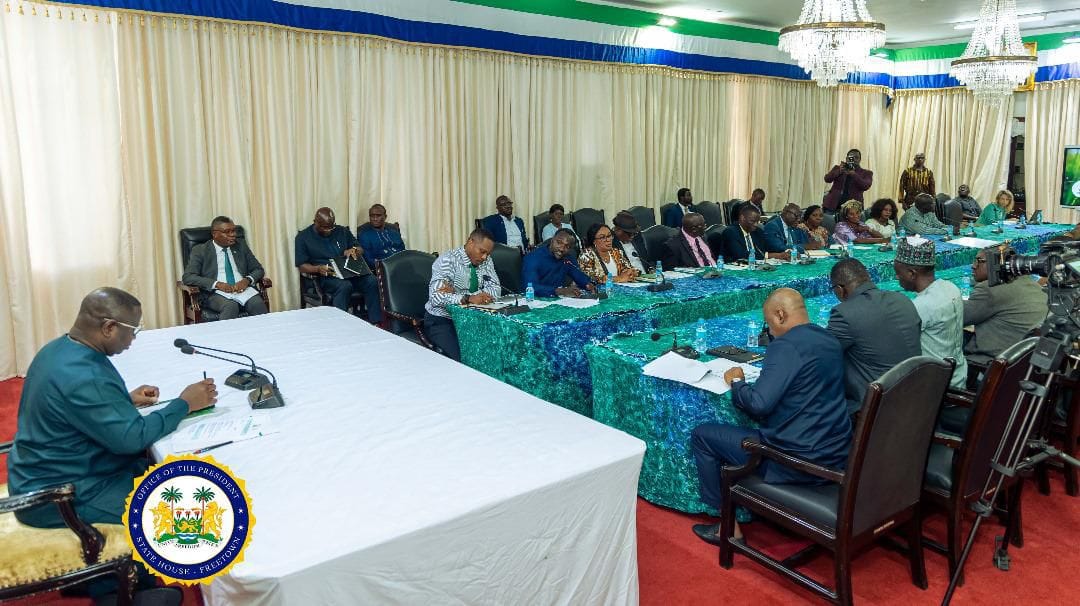The Presidential Council for Delivering Feed Salone has engaged His Excellency President Dr. Julius Maada Bio at State House, briefing him on the significant progress made under the government’s flagship Feed Salone initiative. The Council also emphasized the need for farmers to adopt climate-smart agricultural practices.
Dr. Henry Musa Kpaka, Minister of Agriculture and Secretary to the Council, updated President Bio on the key achievements over the past year. He highlighted the development of strategic policies and partnerships with local and international stakeholders, aimed at facilitating the successful implementation of Feed Salone. He said institutional frameworks have been established to guide the initiative, ensuring a strong foundation for its continued success.
Dr. Kpaka outlined some of the notable achievements, including the mobilization of over $1 billion in funding and technical support, which has enabled the government to invest heavily in infrastructure, including roads, bridges, and irrigation systems nationwide. Dr. Kpaka added that a national soil mapping program was also completed, providing critical data to inform farmers and partners on optimal farming practices across the country.
The Minister further emphasized that the focus on increasing rice production has been strengthened by expanding cultivated areas, enhancing mechanization, improving irrigation, and creating greater access to agricultural financing. He also spoke about a significant investment in seed and input systems, including the cultivation of orange-fleshed sweet potatoes and yellow-fleshed cassava, and innovations such as rural telephony systems, which have been introduced to support farmers.
Looking ahead, Dr. Kpaka revealed ambitious plans for the next two years, including the development of 16,000 hectares of Inland Valley Swamps, strengthening the seed systems, scaling up livestock projects, and industrializing cassava production. He also mentioned the creation of the country’s first farmer registry and the establishment of insurance policies for farmers. The Minister called for increased civic engagement, stressing that Feed Salone is a national initiative requiring the participation of all Sierra Leoneans.
President Julius Maada Bio expressed his gratitude to the Council for their dedication and belief in the vision of Feed Salone. He acknowledged the significant progress made in just one year, attributing it to the collective efforts of the Council members and their diverse professional expertise.
“I have aggressively sought funding both within and outside Sierra Leone to realize the promise I made to the people,” President Bio said. “I have made strong cases for Feed Salone to our international partners, which has resulted in pledges that will support our agricultural agenda and value chain program. It is our responsibility to prepare projects that will ensure we can access those pledges.”
The President reiterated his commitment to ensuring that Sierra Leone can feed itself, stating that this requires collective determination and responsibility. “With the combined wisdom and experience of this Council, I am confident we will succeed in delivering on Feed Salone,” he assured.
Vice President Dr. Mohamed Juldeh Jalloh also weighed in, noting a reduction in food imports as a result of the government’s investments in farmers through credit facilities provided by the central bank. He emphasized that while Feed Salone represents an end goal, it is the development of a robust food chain system that is key to achieving sustainable food security in the country.











